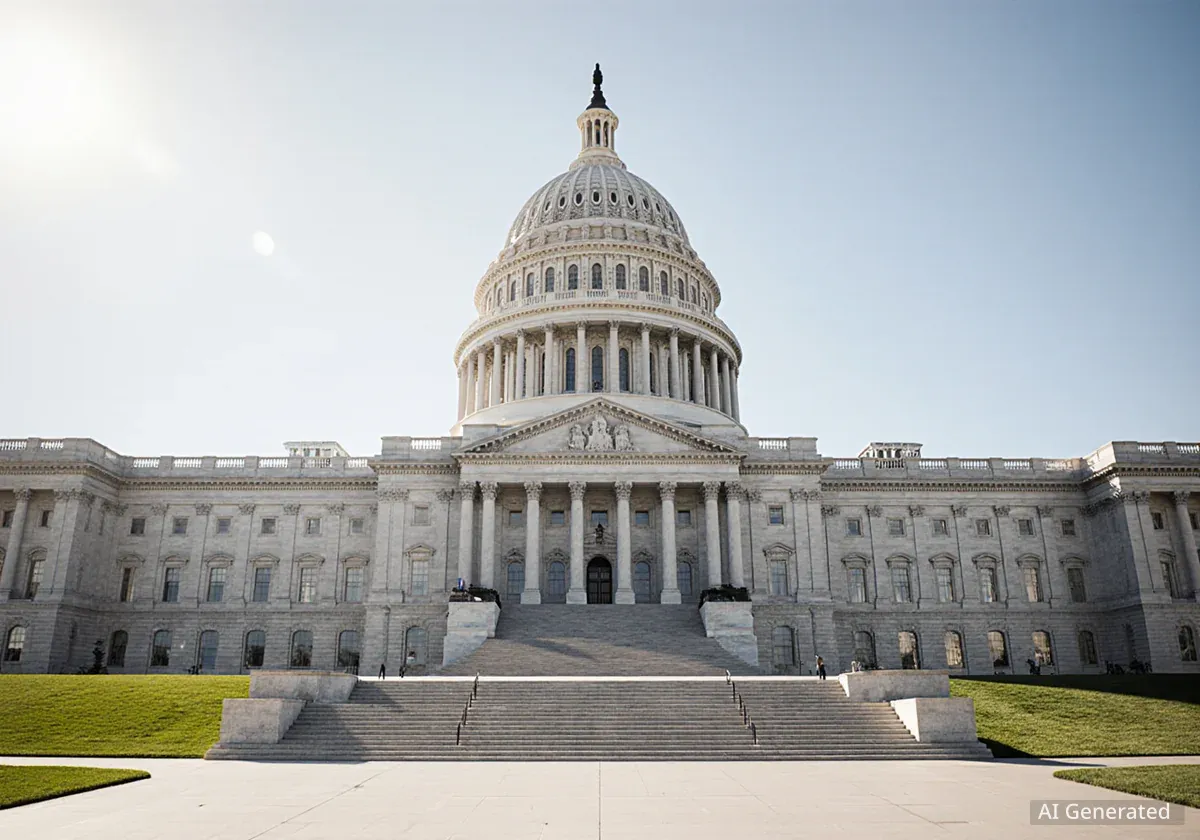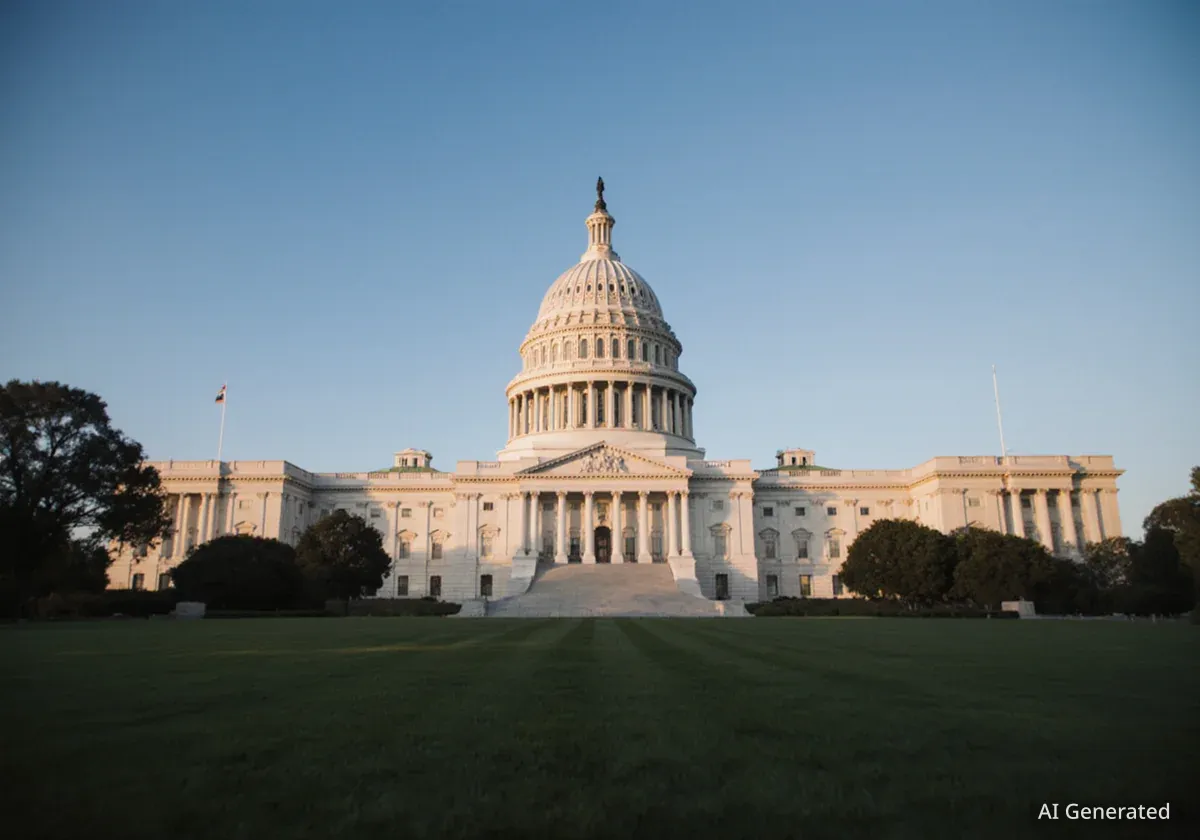Israel's Finance Minister, Bezalel Smotrich, has described the Gaza Strip as a potential "real estate bonanza" during a conference in Tel Aviv. Speaking on Wednesday, he stated that he has initiated discussions with American officials regarding the division of the coastal territory after the current conflict ends.
The comments introduce a controversial perspective on the post-war future of Gaza, aligning with resettlement proposals advocated by far-right elements within the Israeli government. Smotrich also publicly disagreed with recent economic remarks made by Prime Minister Benjamin Netanyahu, signaling internal policy divisions.
Key Takeaways
- Finance Minister Bezalel Smotrich referred to Gaza as a "real estate bonanza" at a property conference.
- He claimed to be in negotiations with the United States about dividing the land in Gaza after the war.
- These remarks align with proposals for Israeli resettlement in the Strip, a position not officially held by Prime Minister Netanyahu.
- Smotrich also contradicted Netanyahu's recent statement comparing Israel's potential economic future to that of "Sparta."
- The Prime Minister's "Sparta" comment had previously caused a dip in the Tel Aviv Stock Exchange.
Controversial Vision for Post-War Gaza
During a real estate conference in Tel Aviv on September 17, 2025, Finance Minister Bezalel Smotrich presented a vision for the Gaza Strip focused on property development. According to Hebrew media reports, he framed the territory's future in economic and development terms.
Smotrich suggested that the significant financial investment in the war could be recouped through land development in the region. He remarked that the territory represents a lucrative opportunity that could effectively pay for itself.
"There is a real estate bonanza in Gaza that pays for itself," Smotrich was quoted as saying. He added, "We have poured a lot of money into this war. We have to see how we are dividing up the land in percentages."
The minister also appeared to frame the military's destruction in Gaza as a preliminary step toward redevelopment. "The demolition, the first stage in the city’s renewal, we have already done. Now we just need to build," he stated, linking the conflict's outcome directly to construction possibilities.
Context of Resettlement Proposals
Smotrich's comments are part of a broader push from far-right factions within Israel's coalition government to re-establish Israeli settlements in the Gaza Strip. Israel unilaterally disengaged from Gaza in 2005, dismantling all settlements and withdrawing its military forces from within the territory. However, a vocal minority has consistently advocated for a return, a position that has gained prominence during the recent conflict.
Alleged Discussions with the United States
A significant part of Smotrich's statement was his claim that talks with the United States on this matter are already underway. "I have already started negotiations with the Americans," he told the conference attendees, suggesting that the division of Gazan land is a topic of international discussion.
This claim comes amid reports of proposals from the Trump administration regarding Gaza's future. President Donald Trump has previously mentioned ambitions to transform the Gaza Strip into a prosperous, American-controlled coastal area, sometimes referred to as a "Riviera."
Previous US Post-War Proposals
In August, The Washington Post reported that the Trump administration was considering a detailed plan for Gaza's reconstruction. This proposal reportedly included a decade of US control over the Strip and financial incentives for approximately a quarter of its Palestinian population to relocate, potentially permanently.
These American-led proposals have faced widespread condemnation. Palestinian leaders, the majority of the Arab world, and many international bodies have rejected any plans that involve the mass displacement of Gazans or external control over the territory.
Prime Minister Benjamin Netanyahu has publicly stated that Israel has no intention of permanently occupying or resettling Gaza. Smotrich's comments, therefore, stand in direct contrast to the official government line, highlighting deep divisions on one of the most critical issues facing the country.
Disagreement on Economic Policy
In the same speech, Smotrich took the opportunity to distance himself from recent economic statements made by Prime Minister Netanyahu. On Monday, Netanyahu suggested that increasing international isolation could force Israel to develop a self-reliant economy with "autarkic characteristics," comparing it to a "super-Sparta."
This analogy sparked immediate and harsh criticism from opposition leaders and the business community, who feared it would damage investor confidence. The remarks were followed by a noticeable dip in share values on the Tel Aviv Stock Exchange.
"I do not agree with the prime minister’s words and I really did not like the comparison to Sparta," Smotrich said, directly repudiating Netanyahu's assessment.
The backlash prompted the Prime Minister's Office to issue a clarification on Tuesday. Netanyahu stated he had "full confidence" in Israel's economy and explained that his comments were primarily aimed at the need for self-sufficiency in the defense industry, not the broader national economy.
Market and Political Reactions
The combination of controversial foreign policy proposals and public disagreements on economic strategy reflects a tense political climate. Smotrich's dual statements—one outlining a radical vision for Gaza and the other challenging the Prime Minister's economic rhetoric—underscore the fractures within the governing coalition.
Analysts suggest that such public discord can create uncertainty in both diplomatic and financial spheres. The advocacy for resettling Gaza complicates Israel's relationships with key allies, including the United States and European nations, who support a two-state solution and oppose resettlement. Simultaneously, conflicting messages on economic direction can unnerve markets and deter foreign investment at a critical time.
As the conflict continues, the debate over "the day after" in Gaza remains a central point of contention, with figures like Smotrich advancing plans that diverge sharply from stated international and official Israeli government policy.





